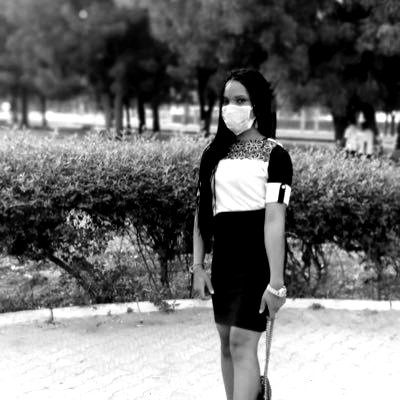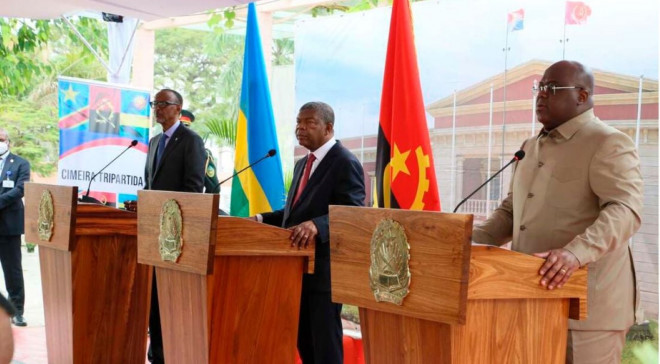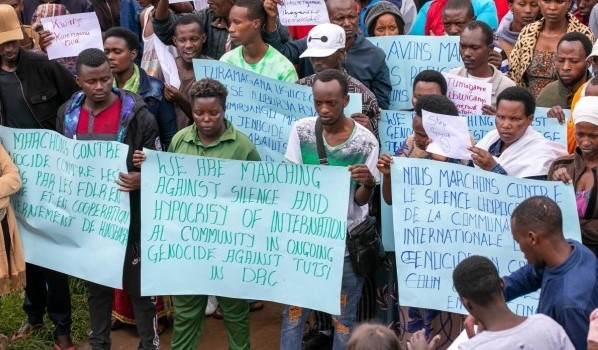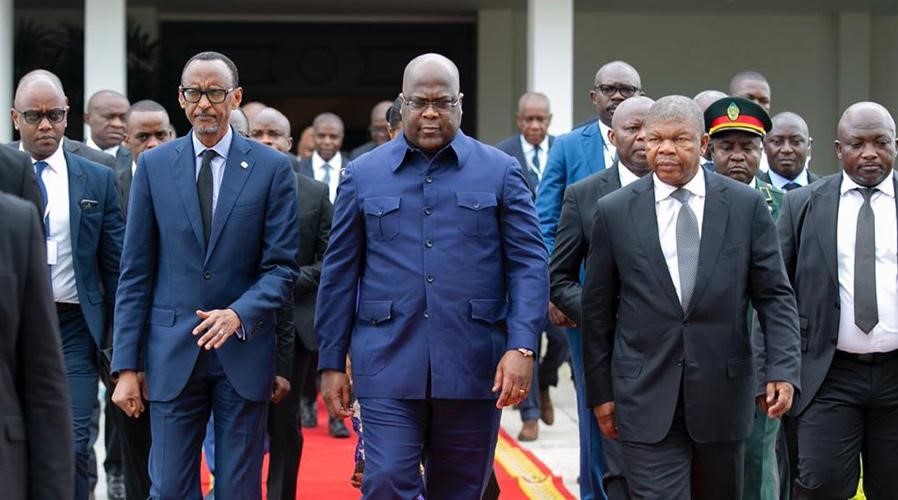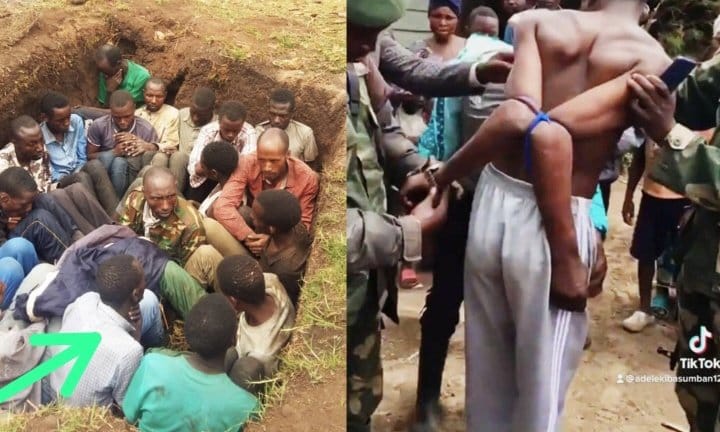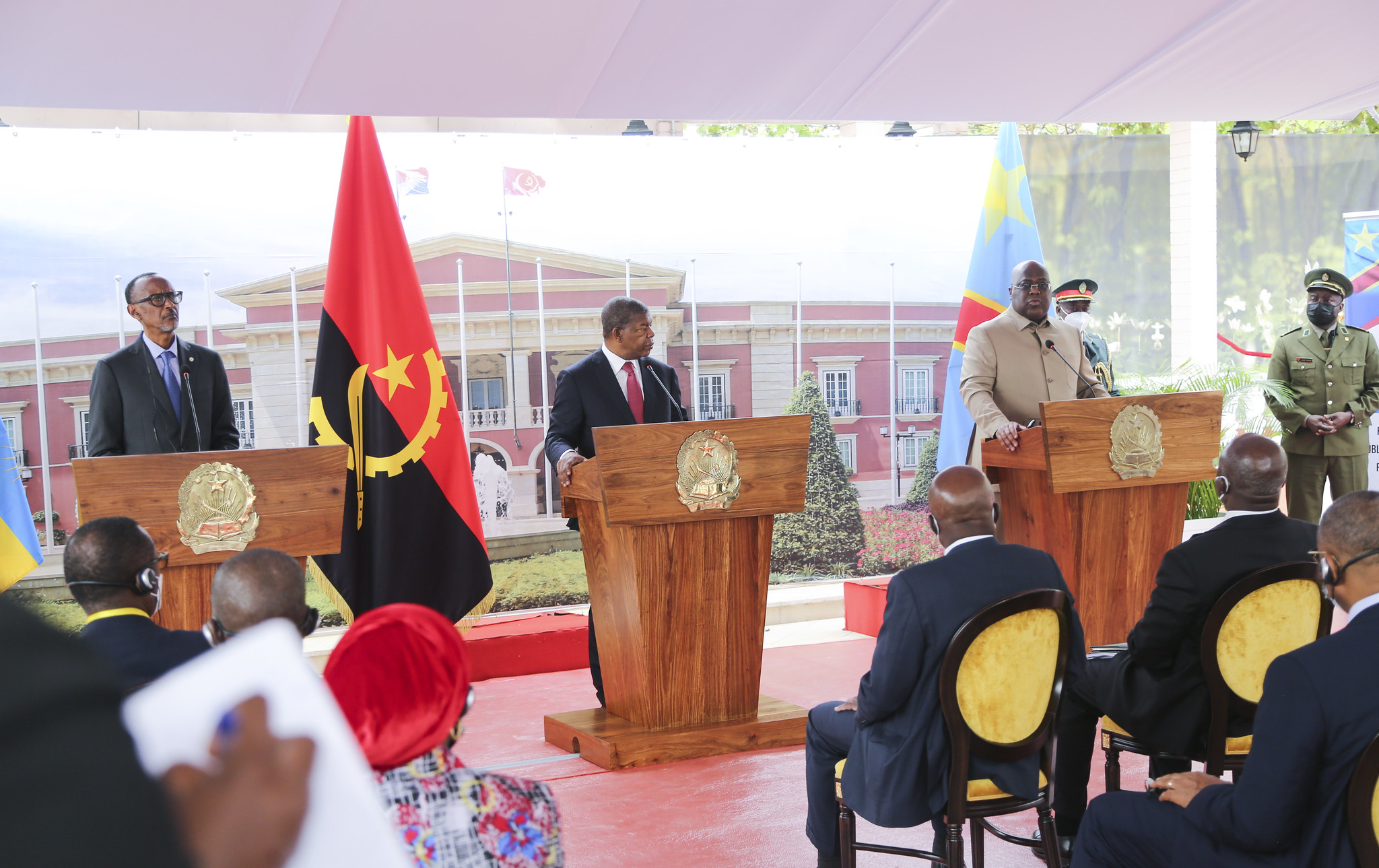Regional
What should be expected from upcoming DRC-Rwanda meeting
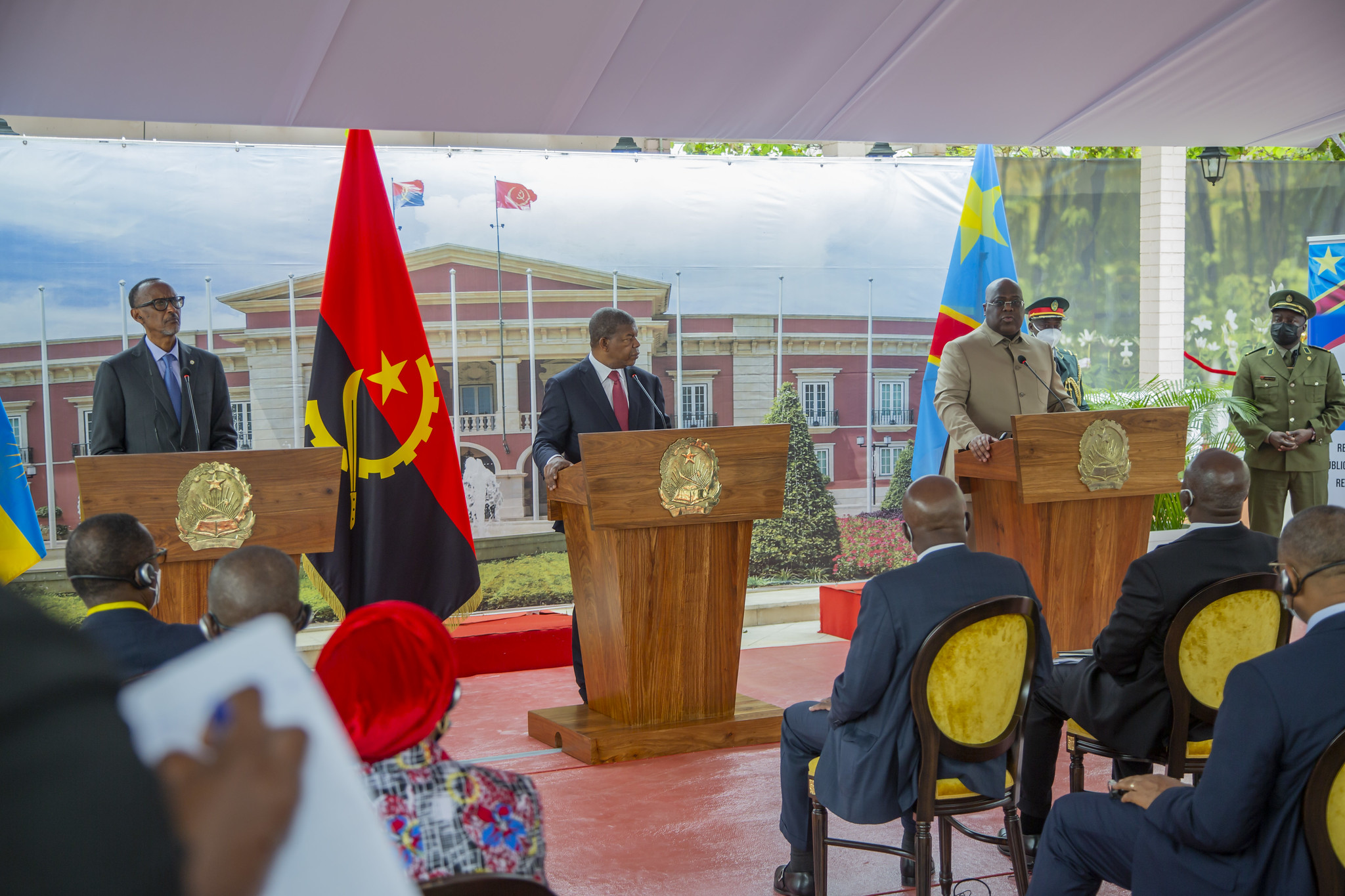
Rwandan President Paul Kagame (left) and his Congolese counterpart Felix Tshisekedi (right) in Luanda, Angola on July 6, 2022.
The East African Community (EAC) ministers of foreign affairs
held a three-day retreat in Zanzibar, Tanzania, from July 6 to 8 to discuss the
security crisis in eastern DRC and the bloc's integration agenda.
Among the key takeaways from the meeting is that it was recommended
that the foreign ministers of Rwanda and DRC meet, in the framework of the
Luanda peace process. Their meeting will focus on the frosty relations between
the two countries and the war in eastern DRC.
Keen observers believe that a mere meeting between both
countries will not yield any tangible results if certain critical issues -
especially the root causes of the conflict - are not frankly considered and
addressed.
In a September 2023 interview with Jeune Afrique, Rwandan
President Paul Kagame, when asked if dialogue with his Congolese counterpart
Felix Tshisekedi was possible, answered that talking for the sake of talking
will not solve problems.
“Would someone who refuses to talk to his own citizens talk to
me? Wouldn’t that be strange? I have always been willing to talk to him. In
fact, we spoke a lot together at one time and the problems we’re facing today
were already at the heart of our discussions,” Kagame said, adding that people say
that the DRC problem is between Kagame and Tshisekedi, yet that’s not it.
A regional political analyst who preferred anonymity said that
the bilateral meeting’s purpose would be to, most importantly, address the
frosty relations between Kigali and Kinshasa.
“Both countries are neighbours and will continue to be. No
government would want a bad relationship with their neighbours as it affects
their trade and farewell of citizens on both sides, which is what Rwanda and
DRC should thrive for."
For years, the Congolese government has blamed Rwanda for
supporting the M23 rebels in the east of the country, an accusation Rwanda has
constantly denied, pointing out that it is a Congolese internal problem and
advised that it is important the Congolese government focuses on addressing the
root causes of the conflict.
The M23 rebels are Congolese citizens. Successive
Congolese governments have failed to address the continued discrimination and
harassment of the Kinyarwanda-speaking Congolese community. The latter have
been denied their fundamental rights as legitimate Congolese citizens. The
Congolese Tutsi have specifically been targeted by hate speech, killing,
lynching, cannibalism and other inhumane acts.
This injustice is what prompted the M23 rebels to take up arms
again in November 2021, to fight against government forces. The rebels are
fighting for their survival and protection of the Congolese Tutsi community.
The EAC leaders acknowledged that the M23 problem can only be
addressed politically, but Kinshasa chose another path; militarily fighting the
M23 rebels, which is proving to not be working but escalating the crisis.
To date, the M23 rebels have captured swathes of territory and
only demand one thing from their government; dialogue.
Kinshasa has totally disregarded their wishes for political
dialogue and formed a coalition comprising the FDLR genocidal forces,
ethnic-driven local armed groups allied to FDLR under the umbrella of
Wazalendo, SADC forces, and Burundian armed forces, as well as European
mercenaries and Private Military Security Companies, all to fight the rebellion
they branded as terrorists.
On top of failing their own citizens, the Congolese government
chose solely to blame Rwanda, for the crisis in the east of the country.
For Kigali and Kinshasa to have a productive meeting, Kinshasa
must own up and acknowledge that the M23 rebellion is an internal problem that
should be dealt with accordingly, without involving neighbors.
An October 2022 Human Rights Watch pinned the Congolese
army on supplying arms and ammunitions to FDLR, a genocidal militia formed by
remnants of the perpetrators of the 1994 genocide against the Tutsi in
Rwanda.
The FDLR is not only operating in eastern DRC. It was
incorporated into the Congolese army, with a target of attacking Rwanda. The
genocidal militia is an existential threat to Rwanda.
Tshisekedi and his government refused to address the FDLR
problem yet find it convenient to blame Rwanda for their security crisis
despite harboring and arming genocidaires.
Without setting parameters; frank discussions and accepting
accountability, the meeting will only be a photo session with no tangible
resolutions. And the DRC crisis will continue to be a nightmare for Congolese
citizens and the entire region.


